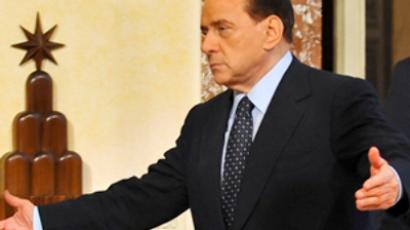Ukraine payment means gas keeps flowing for now
Gazprom says it has received payment from Ukraine for gas supplied in May averting another crisis for now. But Gazprom says problems are just postponed to next month as Ukraine may fail to pay its gas bills in June.
Ukraine’s gold and foreign currency reserves have sunk to just to half a billion dollars after Kiev paid its gas debts to Gazprom. Gazprom confirmed on Monday it has received the money in full, but warns the current payment did not avert, but merely postponed a new energy crisis.
Market watchers like Ron Smith, Chief Strategist at Alfa Bank, share this opinion.
“The biggest problem of using your reserve funds is that it isn’t a permanent solution. It gets you through this month but what are you going to do next month You can’t draw out the reserve funds for ever. Right now the country can’t afford the gas bill. It’s unfortunate but their GDP has dropped so sharply that it’s hard to say where they going to find consistent money to pay for the gas."
The International Monetary Fund has forecast that Ukraine's economy will contract 8% this year, leaving little doubt that Kiev won’t manage to pay for gas by itself.
Apart from the current gas bills Ukraine needs another $5 billion to fill its underground storages for winter. Due to the limited capacity of the transportation system if Kiev fails to do it now, it may result in disruptions of gas supplies to Europe at the end of the year.
Moscow has repeated it is not willing to bail out Ukraine on its own, and is urging the European Union to come up with a syndicated loan for Kiev. Paolo Scaroni, Chief Executive Officer of Italian energy company, ENI, understands Ukraine’s financial difficulties.
“Ukraine has problems in paying its bills, which is not a surprise. Ujkraine is a poor country and the crisis is hitting it as it is hitting the rest of the world. I don’t think that Ukrainian economy can pay the price that western countries pay for gas.”
The European Union said last week it did not immediately have the money for struggling Ukraine, but will consider possible help at an EU summit in late June.













